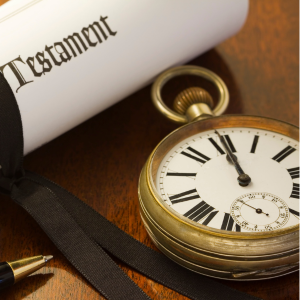
Understanding Probate Laws in Pasadena, California: A Comprehensive Guide
Probate law in Pasadena becomes essential the moment someone’s house enters the process after death. Everyone staying in, renting, or even looking after that property should understand how those local rules operate.
In California, probate is the official process that kicks in after someone dies. The court first checks that the will is genuine, then ensures a fair sharing of assets. For Pasadena homeowners, that means steering through local court procedures that decide how property is treated while the probate case moves forward.
Before a house can go to its new owners, all outstanding debts, tax bills, and liens must be settled first. So even if the deceased person lived in Pasadena, the estate executor, also called the personal representative, has to work within California’s rigid probate rules, locking up the property, protecting it, and maybe selling it so creditors get paid.
Pasadena homeowners must remember that city policies and quirky zoning rules can derail a project and dump extra to-dos in their laps. Bringing in an attorney who understands California law and Pasadena’s local peculiarities keeps the deal steady, offering straight advice for every curveball that pops up while transferring property through probate.
Understanding Intestate Succession Laws in California Probates
If you live in Pasadena and navigate probate after someone dies without a will, understanding California’s intestate succession rules suddenly matters a lot. When that happens, the estate enters intestate probate, and these laws dictate how every asset, real estate included, gets handed out.
Intestate succession determines who inherits by examining how closely each person was tied to the decedent, putting spouses, registered partners, children, and a few other close relatives at the front of the line. So, for Pasadena homeowners caught in a no-will probate, state guidelines usually point the family’s shared dwelling toward immediate blood relatives or a surviving partner.
The community property laws in California also play a significant role if the decedent was married, potentially affecting how property is allocated between surviving spouses and other heirs. In some cases, multiple parties may have claims to the Pasadena home depending on their legal standing under intestate rules.
Understanding these complex regulations is essential for successfully navigating the probate process and ensuring the rightful inheritance of real estate assets within California’s legal framework.
Can You Live in a House During Probate in California?
Living in a Pasadena home during probate in California involves specific legal considerations and potential challenges. Probate is the legal process that occurs after a person’s death, during which their estate, including real estate, is administered and distributed according to the will or state law if no will exists.
In California, it is possible to live in a house during probate, but this may depend on several factors such as the will’s provisions, agreement among heirs or beneficiaries, and any existing debts or claims against the estate. The estate executor plays a crucial role in managing the property during probate and must ensure that all legal obligations are met before allowing someone to reside in the home.
Potential occupants should be aware of responsibilities like maintaining property insurance, paying utilities, and possibly rent if required by the estate terms. Consulting with an experienced California probate attorney can provide valuable guidance on navigating these complexities. Eazy House Sale can also guide you while living in a Pasadena home under probate conditions.
Timeline of the Probate Process in California: What to Expect

Understanding the timeline of the probate process in California is crucial for navigating the complexities of real estate transactions when living in a Pasadena home during probate. The process generally begins with filing a petition with the court to administer the decedent’s estate, which can take several weeks to schedule.
Once appointed, the executor or administrator must inventory and appraise all assets within four months, including real estate properties like your Pasadena home. During this time, creditors have up to four months to file claims against the estate.
This stage can be prolonged depending on asset complexity and potential disputes among heirs. Selling a home during probate requires court approval after an offer is accepted, extending the timeline due to necessary notices and hearing schedules.
On average, probating an estate in California can take nine months to over a year. Understanding these stages helps residents manage their expectations when residing in a property subject to probate proceedings and ensures compliance with legal requirements throughout this intricate process. Contact us to learn how we can help.
Navigating the Probate Process: Key Steps for Homeowners in California
Navigating the probate process in California can be a complex journey for homeowners, especially when it involves living in a Pasadena home during this transitional period. Understanding the probate process is essential, as it governs how assets like real estate are managed and distributed after a person’s death.
In California, once the probate court is involved, homeowners must be aware of key steps, including filing a court petition to initiate probate proceedings. This is followed by validating the deceased’s will and appointing an executor or administrator to oversee estate matters.
Homeowners should also prepare for property appraisals and manage potential creditor claims against the estate, which can impact how long they may reside in the Pasadena home during probate. Keeping detailed records and communicating regularly with legal counsel is crucial to ensure compliance with California’s probate laws.
Understanding any tax implications of inheriting property can help mitigate unforeseen financial burdens. By staying informed and proactive, homeowners can better navigate the complexities of living in a Pasadena home during the probate process while safeguarding their interests within California’s real estate landscape.
How Long Does It Take for a House to Go Through Probate in California?
The probate process for a house in California can vary significantly, typically taking several months to over a year. When living in a Pasadena home during probate, it’s essential to understand that the timeline depends on various factors, including the complexity of the estate, the efficiency of the executor, and whether any disputes arise among heirs or beneficiaries.
In California, probate proceedings generally begin with filing a petition with the court and notifying all interested parties. Once this is done, the estate assets, including the Pasadena property, are inventoried and appraised.
The court will then oversee debt payments and distribution of assets according to the will or state law if no will exists. Delays often occur due to contests over the estate or complications in asset liquidation.
Thus, residents need to prepare for extensions beyond initial expectations when living in a Pasadena home during this period. Understanding these nuances helps set realistic expectations for anyone navigating California’s real estate probate process.
Living in a House During Probate: Legal Considerations and Implications

When living in a Pasadena home during probate, it’s crucial to understand the legal considerations and implications involved under California real estate law. Probate is the court-supervised process of validating a will, settling debts, and distributing assets, including real property such as homes.
During this period, occupying a property can be complex due to potential restrictions placed by the probate court. Individuals residing in the property must be aware of any limitations on making alterations or improvements to the home without court approval, as these actions might affect the estate’s value.
Additionally, understanding who is responsible for mortgage payments, property taxes, and maintenance during probate is essential to avoid legal complications. Before making decisions about living arrangements, it’s important to communicate with the estate executor or administrator regarding occupancy rights and any agreements that need approval from beneficiaries or heirs.
Legal counsel may be necessary to navigate disputes if multiple parties are interested in the residence, ensuring compliance with California probate regulations while protecting one’s rights within the estate proceedings.
What Can You Do While Waiting for Probate?
While waiting for probate in California, particularly when living in a Pasadena home, you can take several proactive steps to manage the property effectively. First, it is crucial to maintain the home’s condition; this includes regular cleaning, necessary repairs, and ensuring the landscaping is well-kept.
Keeping the Pasadena real estate in good shape preserves its value and enhances its appeal to potential investor home buyers in Long Beach and surrounding cities in California, or heirs. Additionally, you should keep up with mortgage payments and property taxes to avoid penalties or legal complications during the probate process.
It might be beneficial to consult with a California real estate attorney specializing in probate matters to navigate legal intricacies. Moreover, consider hiring a professional appraiser to determine the current market value of your Pasadena home, which can be vital information for future decisions regarding selling or transferring ownership.
Staying organized by keeping detailed records of all property maintenance and improvement expenses is also advantageous during probate proceedings. Engaging with local Pasadena real estate experts could provide insights into market trends and help prepare for a potential listing if selling becomes an option after probate.
While awaiting probate resolution, taking these actions ensures that your Pasadena home remains a valuable asset within California’s competitive real estate landscape.
Rights of Heirs and Beneficiaries During Probate Proceedings
During California probate proceedings, heirs and beneficiaries have specific rights regarding a Pasadena home. Understanding these rights is crucial for anyone involved in the process.
Heirs and beneficiaries are entitled to be informed about the status of the probate proceedings and any actions taken regarding the property. They have the right to receive copies of important documents, such as the will and inventory of assets, ensuring transparency throughout the process.
If an heir or beneficiary lives in the Pasadena home during probate, they may need permission from the executor or court to continue living there. They must understand their legal standing, particularly if property management or distribution disputes arise.
Additionally, beneficiaries can petition the court if they believe that an executor is not properly fulfilling their fiduciary duties, including managing the Pasadena home to protect its value for all interested parties. Being well-informed about these rights helps heirs and beneficiaries safeguard their interests during a complex real estate situation within California’s legal framework.
Executor Responsibilities and Duties in Pasadena, California Probates

Navigating the complexities of probate in Pasadena, California, requires a thorough understanding of the executor’s responsibilities and duties. As an executor managing a Pasadena home during probate, you are responsible for ensuring that all legal obligations are met while maintaining the property.
This includes securing the home, paying outstanding debts or associated taxes, and managing ongoing mortgage payments and maintenance costs. Furthermore, it’s crucial to accurately inventory and appraise the property’s value as part of the estate’s assets.
Executors must also communicate effectively with beneficiaries and adhere to California probate laws, which may involve filing necessary paperwork with the court and keeping detailed records of all transactions related to the estate. Efficiently handling these tasks not only ensures compliance but also helps facilitate a smoother distribution process once probate concludes.
Understanding these responsibilities is key to successfully administering an estate in Pasadena under California’s specific legal framework.
Selling Vs. Retaining Property During Probate: Pros and Cons
When dealing with a home during probate, deciding whether to sell your house for cash in Pasadena and other cities in California or retain the property involves weighing several pros and cons. Selling the property can provide immediate liquidity, which can be crucial for covering probate expenses, settling debts, or distributing proceeds among heirs.
It also relieves the estate from ongoing responsibilities such as maintenance costs, property taxes, and potential market fluctuations that might affect property value. On the other hand, retaining the property could offer long-term financial benefits if real estate values in California continue to appreciate.
Heirs may keep the home as an investment or for personal use, potentially generating rental income. However, this option requires managing upkeep costs and navigating disputes among beneficiaries with differing opinions on whether to hold onto or sell the property.
Understanding these aspects is essential when considering how best to approach a Pasadena home’s future during probate proceedings in California’s complex real estate market.
Common Challenges Faced When Dealing with Property During Probate
Living in a Pasadena home can present several common challenges during probate, particularly within California real estate laws. One significant issue is navigating the complex legal requirements for managing a property undergoing probate proceedings.
Executors or administrators must ensure compliance with court orders and deadlines, which can be intricate and time-consuming. Additionally, financial burdens are often associated with maintaining the property, such as covering mortgage payments, property taxes, and insurance costs while waiting for probate to conclude.
Another challenge is dealing with potential disputes among heirs or beneficiaries who may have differing opinions on whether to sell or retain the home. These conflicts can lead to delays and increased legal expenses.
Furthermore, if the property needs repairs or renovations to maintain its value, coordinating these efforts during probate adds another layer of complexity. Understanding local market conditions in Pasadena is crucial when deciding whether to sell the property during probate, since real estate values fluctuate, impacting potential returns for beneficiaries.
Executors must also be aware of any outstanding debts attached to the deceased’s estate, as creditors may have claims against the property that must be resolved before distribution occurs.
Does a Living Will Avoid Probate in California?
In California, a living will does not avoid probate. A living will, or advance healthcare directive, is a legal document specifying an individual’s healthcare preferences if they become incapacitated.
It deals primarily with medical decisions and end-of-life care rather than the distribution of assets. To avoid probate for real estate in Pasadena and throughout California, one would typically need to establish a living trust instead.
A living trust allows property to be transferred directly to beneficiaries without going through the probate process, thereby saving time and reducing costs associated with probate proceedings. While a living will is important for ensuring your healthcare wishes are honored, it is not a tool for bypassing probate when dealing with real estate or other assets in California.
Therefore, those residing in a Pasadena home during probate should consider additional estate planning tools beyond just a living will if their goal is to streamline property transfer upon death.
Do you need to sell your house? Sell quickly, avoid expensive repairs, or want a hassle-free transaction. Eazy House Sale is here to help. We make fair cash offers, handle all details, and simplify the process. Are you ready to sell or have any questions? Call us at (855) 915-1382 for a no-obligation quote. Get started now!
| RENTING | VALUATION | LAWYER | LITIGATOR | LITIGATION | LIENS |
| LEASE | JUDGE | CONSERVATORSHIPS | TRUSTEE | SCENARIO | RISKS |
| GUARDIANSHIPS | INSURANCE PREMIUMS | SURVIVORSHIP | JOINT TENANCY | BANKRUPTCY | THE ESTATE IS |
| THE PROPERTY IS | OF THE PROPERTY | IN THE WILL | IS NO WILL | NAMED IN THE WILL | THE HOUSE DURING PROBATE |
| THERE IS NO WILL |
Helpful Pasadena Blog Articles

